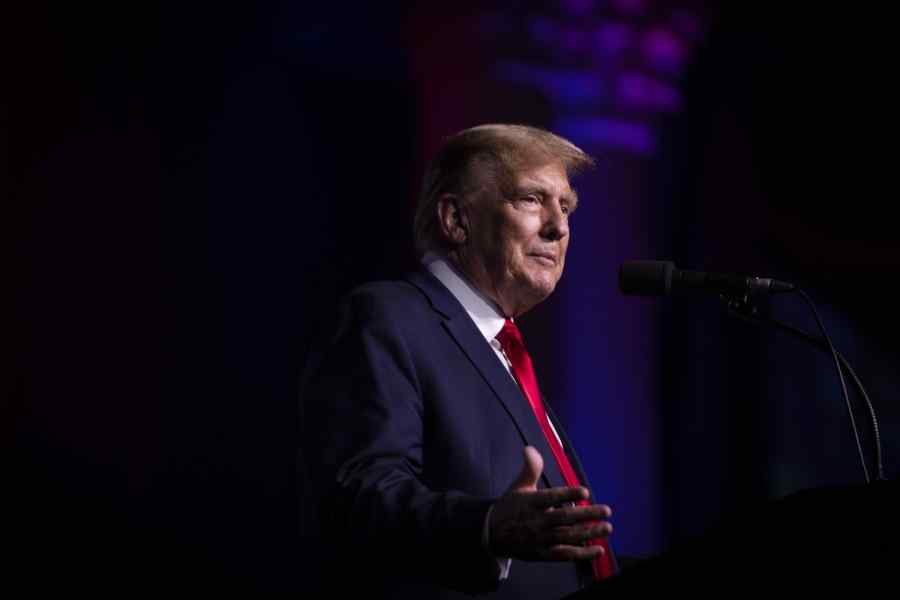Former President Donald Trump urged the Supreme Court on Tuesday to rule that he is absolutely immune from criminal charges stemming from his attempts to subvert the 2020 election.
“The president cannot function, and the presidency itself cannot retain its vital independence,” the brief said, “if the president faces criminal prosecution for official acts once he leaves office.”
The brief, Trump’s main submission to the justices before the case is argued April 25, continued to press an expansive understanding of presidential immunity, one that it said was required by the very structure of the Constitution.
“The question of a former president’s criminal immunity presents grave constitutional questions that strike at the heart of the separation of power,” the brief said.
Legal experts said Trump was unlikely to prevail but added that how and when the court rejects his arguments will effectively determine whether and when Trump’s trial, which had been scheduled to start March 4, will proceed.
When the Supreme Court agreed to hear the case last month, it set what it called an expedited schedule. But it was not particularly fast, culminating in oral arguments some seven weeks later, on April 25. That delay represented a significant partial victory for Trump.
Even if the court then moves with considerable speed and issues a categorical decision against Trump within a month, the trial would most likely not start until at least the fall, well into the heart of the presidential campaign. If the court does not rule until late June or sends the case back to the lower courts for further consideration of the scope of any immunity, the trial might not take place until after the election.
If Trump prevails in the election, he could order the Justice Department to drop the charges.
Trump’s brief was critical of an earlier ruling from a three-judge panel of the U.S. Court of Appeals for the District of Columbia Circuit, which unanimously rejected his argument that he may not be prosecuted for actions he took while in office.
“For the purpose of this criminal case, former President Trump has become citizen Trump, with all of the defenses of any other criminal defendant,” the panel wrote. “But any executive immunity that may have protected him while he served as president no longer protects him against this prosecution.”
The New York Times Services










